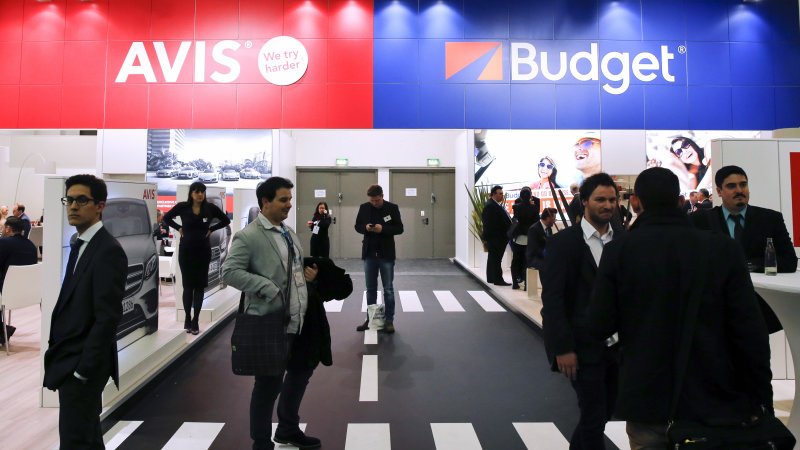Avis tests fully connected fleet of 5,000 rental cars in Kansas City

The Parsippany, N.J.-based company's so-called Mobility Lab will connect all 5,000 cars in its Kansas City fleet and share live data with the city from those vehicles so it can sharpen computerized traffic flow models, and collaborate on ways to improve tourists' experiences when they rent through Avis.
A "connected car" is linked wirelessly to the internet, other vehicles and, in Avis' case, to a centralized network, which the company said will enable it to automate many processes that are currently performed manually.
Vehicle connectivity is a building block in the process of developing self-driving cars, which major automakers are rushing to bring to the market.
In June, Waymo, Alphabet Inc's self-driving car unit, signed a multi-year agreement for Avis to manage its growing autonomous vehicle fleet.
"As we think about how we're managing our own fleet, we're also looking to see how we can do this for others as well," Avis Chief Executive Officer Larry De Shon told Reuters. "There's a lot of learnings that will come out of this that will be beneficial as we look at fleet management as a service."
Major automakers are racing to roll out alternatives to private car ownership including ride sharing amid the rise of Uber and Lyft. The rush is based on the notion that instead of buying cars, future consumers — especially city dwellers — will generate revenue through vehicle usage.
A challenge for automakers is how to manage fleets of vehicles when their core traditional business is building cars.
Avis has said its global fleet will be fully connected by 2020. According to industry estimates, the company's U.S. rental fleet numbered close to 400,000 vehicles in 2016.
Worries about overcapacity and industry pricing have weighed on shares of rental companies like Avis and rival Hertz Global Holdings, as have concerns that off-lease cars are flooding the used-car market. The rise of car- and ride-sharing companies also makes some investors wary.
De Shon said a fully connected fleet will help automate manual processes and manage the entire life cycle of its vehicles, allowing each car "to say 'I'm on the lot, I'm cleaned and serviced, and I'm ready to be rented.'"
"You can't really start changing your business processes and improve fleet management when some of the cars are connected and some are not, so we really needed a lab where we could get our hands dirty," De Shon added.
Connected cars allow Avis customers to manage their entire rental through an app, including locking and unlocking car doors via smartphone or honking the vehicle's horn when they cannot locate their car.
Bob Bennett, the chief innovation officer for Kansas City, said Avis' connected car fleet will augment the city's wireless network covering 54 contiguous blocks, providing data to enhance its traffic flow models.
The city will hold talks with Avis in the coming months on how to use connected cars to improve Kansas City's parking apps and tourist experience, Bennett said. For instance, if a consumer's telephone shows they are interested in baseball or history, they may receive a "push notification" from their car recommending the Negro Leagues Baseball Museum or the National World War I Museum and Memorial in Kansas City.
"This is fertile soil that has not yet been farmed," Bennett said. "I think it's going to be a bumper crop, I just don't know what the hell it's going to be yet."
